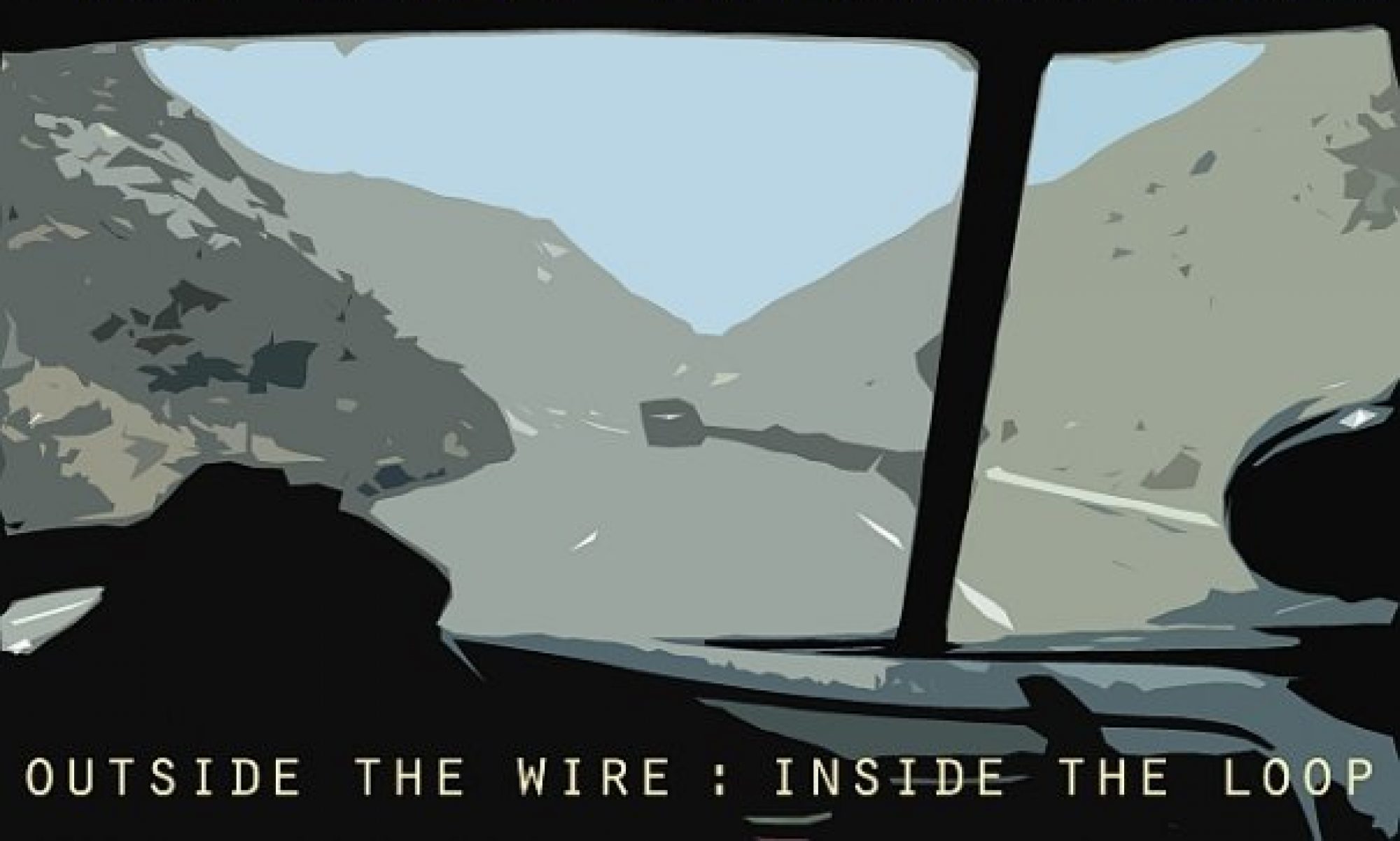Editors Note: This is cross-posted from The Freq media where I currently write a weekly Afghanistan Update.
Last week Military.com published an Associated Press article under the headline “Islamic State Expands Reach in Afghanistan, Threatens West”. I have read it three times now, and consider it fake news. Here is an example:
“The area comprising the provinces of Nangarhar, Nuristan, Kunar and Laghman was so dangerous that the U.S.-led coalition assigned an acronym to it in the years after the invasion, referring to it as N2KL”.
This is not true, N2KL was named after the provinces assigned to R.C. East back around 2008, or so. When the Army started calling the area N2KL it was so safe that I’d have my kids’ vacation with me in Jalalabad over the summers.
Picking apart news stories written by young journos who don’t know much about the topic they were assigned is not the point. This story is only important in respect to the continued involvement of the United States in Afghanistan. If that involvement is based on the fear that ISIS-K will metastasize into an organization capable of planning and launching attacks against the West, we are on a fool’s errand. ISIS-K (hereafter referred to as Daesh-K, because that’s what the cool kids call them) in Afghanistan is not capable of sophisticated international operations targeting the Homeland. Daesh-K are not our friends, but they are also not our problem. They are Pakistan, Afghanistan and maybe Uzbekistan’s problem. A quick history of Daesh-K will help explain my contention, and it just so happens I wrote one in this post back in 2017.

In 2010, Pakistani Taliban, mainly from Tehrik-e Taleban Pakistan (TTP), started to settle in Achin, Nazian, Kot, Deh Bala, Rodat and Ghanikhel districts of Nangarhar province. They invoked Melmastia (the hospitality requirement Pashtunwali places on all its tribesmen towards others, whether they are strangers or members of one’s own tribe) from the local communities saying it was their moral obligation to help their Pashtun brothers. They were moving to avoid the Pakistan army’s Operation Khyber I, which was targeting the TTP in the Northwest Frontier.
Fast forward to 2014; the muhajerin(refugees) from Pakistan have continued to trickle into Nangarhar province but when the Pakistani army launches operation Khyber II, the trickle turns into a flood. Mule trains full of weapons and ammo, some of them 50 animals long, arrive daily into the Mamand Valley, in Achin district, along with hundreds of militants. Suddenly, the muhajerin declare they are now ISIS and evict the Taliban from the districts they control, but leave the Afghan security forces alone. The locals are happy because trade is moving, Taliban and government road blocks are down and nobody is shooting at anybody. The government is happy too because Daesh-K is an enemy of the Pakistanis, making them an enemy of an enemy — which in Afghanistan is a good basis for a long friendship.
But the Taliban did not take this threat lightly, and started attacking ISIS in Nazim district. ISIS battled back hard, and took control of five districts by June of 2015. Then the Taliban went all in with their “elite forces from Loya Paktia and Loy Kandahar” who infiltrated the Mamand Valley (in Achin district), and on one night during Ramadan… (The always excellent Afghan Analyst Network picks up the story):
“In early July 2015, Taleban fighters sneaked into Mamand and, during the night of 2 July, talked to their sympathisers about staging a coordinated attack against the ISKP fighters. They managed to secure the help of various tribal elders. One morning during Ramadan, on 3 July 2015, local men (including those not usually sympathetic to the Taleban) and Taleban rose up together against ISKP, with calls by the Taleban via the mosque’s loud-speakers for all men of fighting age to come out and participate, or face seeing their homes burnt down. Taken by surprise, the ISKP fighters retreated from most of Mamand valley by the end of that day”.
Having routed the Daesh-K the non-local Taliban had to leave too, and it took exactly a week for the Daesh-K to return. After driving most of the locals out of the Mamand Valley, Daesh-K then became our problem. They have been a costly problem, turning Nangarhar into the most dangerous province for American servicemen in the country.
The threat from Daesh-K, as outlined in the AP story is as follows:
“Without an aggressive counterterrorism strategy, Afghanistan’s ISIS affiliate will be able to carry out a large-scale attack in the U.S. or Europe within the next year, the U.S. intelligence official said, adding that ISIS fighters captured in Afghanistan have been found to be in contact with fellow militants in other countries.
Authorities have also already made at least eight arrests in the United States linked to the ISIS affiliate in Afghanistan.
Martin Azizi-Yarand, the 18-year-old Texan who plotted a 2018 attack on a suburban mall, said he was inspired by ISIS and was preparing to join the affiliate in Afghanistan. He was sentenced in April to 20 years in jail.
Rakhmat Akilov, the 39-year-old Uzbek who plowed his truck into pedestrians in Stockholm in 2017, also had links with the Afghanistan affiliate, the intelligence official said. “During interrogation he said ‘this is my commander in Afghanistan and he is telling me what to do,'” he said”.
If the Daesh-K, working diligently from their mountain keeps in Achin district, are causing people around the world to up and Jihad, then how about we cut their internet? The Taliban made cell phone companies turn off their towers at night because they knew ISAF could track them through cell phones so why can’t we do the same with the internet? It’s not like there is a booming local internet service provider economy in the area. How likely is it that the Daesh-K have their own satellite with secure uplinks? The question answers itself.

I don’t think Daesh-K in Nangarhar has anything to do with lone wolf Jihadis LARPingon the internet. But just in case they are, here is another modest proposal that will save serious bucks. Ask the Taliban (at the peace talks) to, as a sign of good faith, go into Nangarhar province and eliminated Daesh-K. In an unimpeachable demonstration of how reasonable we (the US) are, we could lend them some FACs’ and run some close air to support them; maybe even drop another MOAB (which is just a big fuel air explosive). MOAB’s are great for morale as long as you are on the side dropping them.
Using the threat of Daesh-K to justify continued involvement in Afghanistan is folly, because Daesh-K and the Taliban are not a threat to us. The threats to our interests in the region come from Pakistan, Iran, and China.
The linked article above has a good, detailed, explanation of that fact. Here is a sample:
“Pakistan’s duplicity has continued for over seventeen years. While accepting billions of American dollars in military and economic aid, Pakistan has been slowly bleeding the U.S. to death in Afghanistan through its support of the Taliban, Haqqani Network and other terrorist groups.12”
China represents a more significant threat, but one that is difficult to explain unless you are listening to reliable experts. Grant Newsham, a regular on All Marine Radio, does the best job I’ve found explaining China’s vampire-like expansion which targets all sectors of a competitors economy. China already dictates the terms on which Hollywood movies are developed and released. The stakes are explained well by Richard Fernandez in an excellent post titled They Are Coming Through the Wire.
“They [the Chinese] are betting they can put enough harm into the US economy that the 2020 elections go to somebody else. Regions, industries. If you look at the Foxconn factory in Wisconsin, the natural gas agreement in West Virginia, each one of these are means for putting hooks into the local politics into those regions or states then turning around and saying ‘the President is making it very hard to continue making investments’, many of which they never had any actual intention of making. Then they can say ‘it is the President’s fault that your economy is failing.”
Countering the growing influence of China in the region is a good reason to stay in Afghanistan. An independent Afghanistan would be a significant geostrategic win for the West. But is it probable? This I do not know… but what I do know is a way to give our continued presence in Afghanistan a purpose vis-a-vis the threat we are trying to counter.
Here is how you put our advisories on defense, reacting to our moves while fighting a frantic rear action battle for their own legitimacy.
The United States, in the name of free peoples everywhere, and in the context of what is right for peoples who have been wronged, now insists on a homeland for the Pashtun, Baloch and Kurdish peoples.
The current borders were artificially created by the West, specifically to keep these people separate and at each other’s throats. We’re America — and are all about freedom for oppressed peoples victimized by our nasty and brutish (not really in true historical context, but you know where I’m going…) colonial systems.
If we were to suddenly adopt such a radically smart approach to international diplomacy, what would our military in Afghanistan do? I have no idea. Letting the Taliban come over from the Paktia/Khost franchises (they can sneak in behind the Daesh from Pakistan) to battle Daesh-K would be a good start, after that you would have to see how things play out.
The United States is energy independent; we export food, we have two giant oceans separating us from most of the global madness. There is nothing in Central Asia we need or want, except for everyone to calm down and establish some semblance of a legitimate governing apparatus. Our interests are in preventing large disruptions to the global economy from Black Swan attacks, like the one we sustained on 9/11. Those giant hits to the global economy are not sustainable if they become frequent. But saying that Deash-K, or the many and manifest other Jihadi organizations with roots in Uzbekistan or Western China but now resident in Afghanistan, are capable of another 9/11 is to risk developing a “boy who cried wolf” reputation.
There are legitimate threats in the central Asian area, and we should focus on them with effective tools designed for a long game. China is only a peer threat to our military if we are fighting in China, they cannot project combat power around the globe, only the United States can do that in any meaningful numbers.
Our mission in Afghanistan should now be to prevent China and Pakistan from benefitting from our failure. A military presence in Afghanistan helps, forcing our adversaries to react to our moves on the global stage would be better. And what could possibly be better than advocating for a homeland for peoples long oppressed and divided thanks to those devil Europeans and their damn maps?


